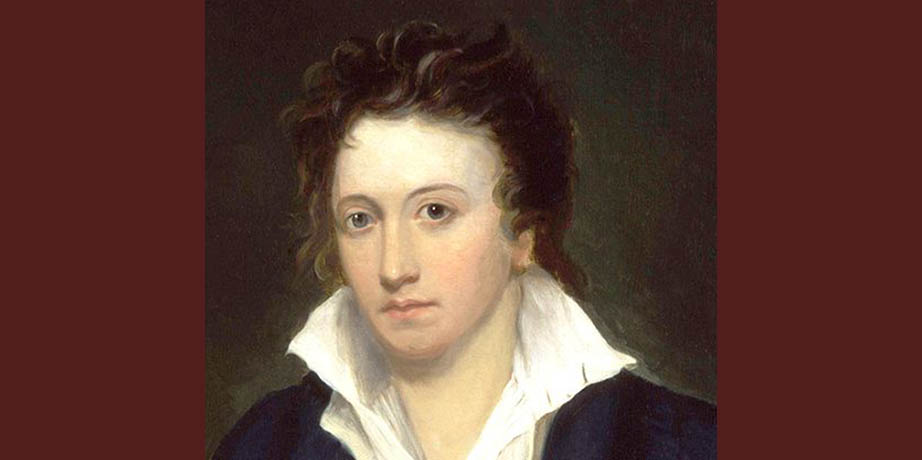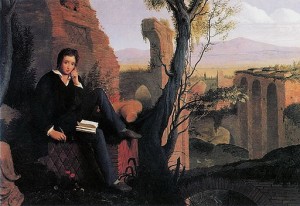
by Jack Ramey | Jan 29, 2018 | Art, Jack Ramey, Poetry, Shelley
I O wild West Wind, thou breath of Autumn’s being, Thou, from whose unseen presence the leaves dead Are driven, like ghosts from an enchanter fleeing, Yellow, and black, and pale, and hectic red, Pestilence-stricken multitudes: O thou, Who chariotest to their dark wintry bed The wingèd seeds, where they lie cold and low, Each like a corpse within its grave, until Thine azure sister of the Spring shall blow Her clarion o’er the dreaming earth, and fill (Driving sweet buds like flocks to feed in air) With living hues and odours plain and hill: Wild Spirit, which art moving everywhere; Destroyer and Preserver; hear, O hear! II Thou on whose stream, ‘mid the steep sky’s commotion, Loose clouds like Earth’s decaying leaves are shed, Shook from the tangled boughs of Heaven and Ocean, Angels of rain and lightning: there are spread On the blue surface of thine airy surge, Like the bright hair uplifted from the head Of some fierce Maenad, even from the dim verge Of the horizon to the zenith’s height, The locks of the approaching storm. Thou dirge Of the dying year, to which this closing night Will be the dome of a vast sepulchre Vaulted with all thy congregated might Of vapours, from whose solid atmosphere Black rain, and fire, and hail will burst: O hear! III Thou who didst waken from his summer dreams The blue Mediterranean, where he lay, Lulled by the coil of his crystalline streams, Beside a pumice isle in Baiae’s bay, And saw in sleep old palaces and towers Quivering within the wave’s intenser day, All overgrown...

by Jack Ramey | Jan 28, 2018 | Art, Jack Ramey, Poetry, Shelley
I met a traveller from an antique land Who said: “Two vast and trunkless legs of stone Stand in the desert . . . Near them, on the sand, Half sunk, a shattered visage lies, whose frown, And wrinkled lip, and sneer of cold command, Tell that its sculptor well those passions read Which yet survive, stamped on these lifeless things, The hand that mocked them, and the heart that fed: And on the pedestal these words appear: ‘My name is Ozymandias, king of kings: Look on my works, ye Mighty, and despair!’ Nothing beside remains. Round the decay Of that colossal wreck, boundless and bare The lone and level sands stretch far away.” by Percy Bysshe Shelley (1792-1822) Portrait of Shelley Writing Prometheus Unbound by Joseph Severn (1793–1879) via Wikimedia Commons Jack Ramey talks about Shelley and reads Ozymandias. Shelley was a radical. He hated tyranny and loved freedom and liberty and the rights of the common man. The Mask of Anarchy, Prometheus Unbound, and The Triumph of Life are all great long poems that celebrate the triumph of libertarian values over tyranny. Shelley’s sonnet, Ozymandias, is one of his most famous poems. It began as a friendly competition between Shelley and his friend Horace Smith, based on a recent announcement of the British Museum‘s acquisition of the adjacent statue. They chose a passage from the Greek Historian Diodorus, which described a massive Egyptian statue and quoted its inscription: “King of Kings Ozymandias am I.” This fine poem reflects Shelley’s view that tyranny cannot last and that tyrants will always vanish in the end...




